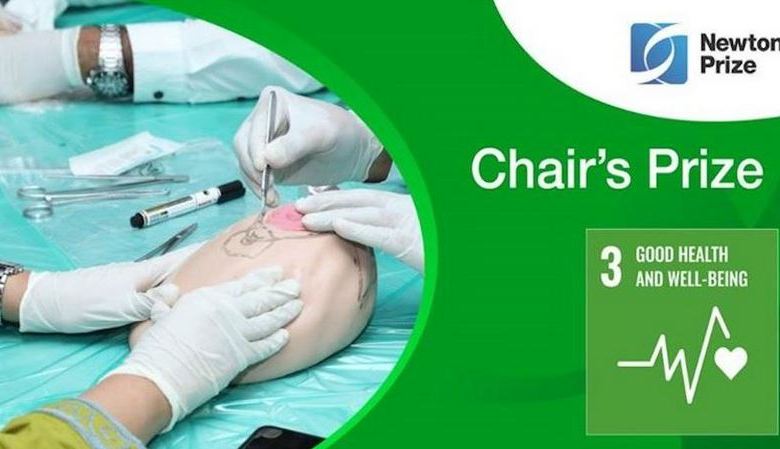
Ozge Akbulut shortlisted for UK-based Chair’s Award of Newton Prize for her work to help breast cancer patients
An Istanbul scientist is looking to win the Chair’s Award of Newton Prize, a UK-based research and innovation fund, for her landmark project to help breast cancer patients.
The project titled “Design and fabrication of synthetic tissue and organ models for surgical trainings” by Ozge Akbulut of Sabanci University in the Turkish metropolis, aims to improve “outcomes for breast cancer patients by training surgeons in a technique that removes tumors while retaining healthy tissue,” according to the Newton Fund.
Akbulut also worked with Dr. Sue Down, a British breast surgeon, and will be entitled to funds worth up to £500,000 ($671,000) if selected for the Chair’s Award of Newton Prize.
On Twitter, Akbulut welcomed her candidacy for the award and said: “Honored to be shortlisted. If we receive the Prize, our team, Dr. Sue Down of University of East Anglia and Dr. Mel Mckendrick of Optomize Ltd, will devise unprecedented access to surgical education in ODA countries. It is time to rethink/redesign education!”
As the winning projects will be announced this November via a virtual awards event, Akbulut recently told Turkish daily Milliyet: “We believe this project will be completed in one-and-a-half years.”
She told the daily that the current project is designed for breast surgery, but if their results are good the same could be done for other parts of the body within three years.
Saying breast cancer is the most common cancer among women, Akbulut added: “The breast models we designed and produced contribute to learning and gaining practice in especially breast-protecting techniques for surgeons.”
With the ongoing coronavirus pandemic affecting millions across the world, she said she and colleagues began to search for ways to “combine online and face-to-face training.”
“We thought about how to provide surgeons with online and physical training together and came up with a system,” she said.
“We suggested a structure where the surgeon’s eye and hand movements will be screened while working on existing breast model, thus allowing us to evaluate their performances in training surgery.”
Noting that such training has never been done before, she said surgeons anywhere across the globe can be trained through this system.
“Once we complete this, we will come up with an online platform that provides not only training on the breast model but also a place where learning progress can be followed. This will be the first in history. We want everyone to reach surgical education without leaving anyone behind,” she said.
She also noted that her project is also supported by the British Association of Breast Surgery.
4 other Turkish scientists shortlisted for Newton Prize
In addition to the Chair’s Award, another prize of up to £200,000 ($270,000) will be awarded by the Newton Fund to another project in high-quality research and impact.
Among projects from Egypt, Jordan, Kenya, and South Africa, there are four different projects from Turkey shortlisted for the Newton’s Prize.
Elif Nur Firat Karalar from Istanbul’s Koc University is shortlisted as a candidate for the prize for her project titled “Dissecting the role of centriolar satellites in spatiotemporal regulation of centriole duplication.”
Professor Memed Duman from Hacettepe University in the capital Ankara is shortlisted as a candidate for the prize for his project“A SPR Sensor System using Molecular Imprinted Polymer-Nanoparticle composites for Ultrasensitive detection of Pharmaceutical Emerging Contaminants in Fresh Water Sources.”
Also, Professor Mustafa Sahmaran from Hacettepe University is shortlisted for the prize for his project “Lego Construction System of ‘Green’ Structural Components for Low-cost Housing.”
Finally, Professor Ebru Emekli-Alturfan from Istanbul’s Marmara University is shortlisted for her project “Collaborative Research on Epigenetic Effects of BPA, BPS and BPF as Potential Endocrine Disrupting Environmental Pollutants in Zebrafish Embryos.”

